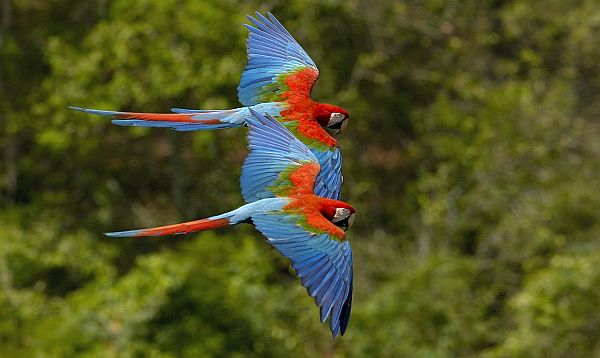Cancun, Mexico - Within the framework of the United Nations Conference on Biodiversity (COP13), the National Commission on Natural Protected Areas and Grupo Experiencias Xcaret signed an agreement to strengthen the recovery program of the scarlet macaw in the jungles of Mexico.
In a statement, the consortium of Quintana Roo indicated that this will formalize joint actions such as environmental education, management of specimens, research, training and financing, aimed at the reproduction and reintroduction of the scarlet macaw in natural areas likely to receive them.
This, it highlighted, will allow expanding the results obtained so far in the crusade for the conservation of the species.
It also includes the authorization of breeding and reintroduction schemes that will allow the program to expand to more habitats where populations of macaws can recover.
The scarlet macaw is part of the list of species at risk in the country and is on the list of the Convention on International Trade of Endangered Species of Wild Fauna and Flora.
However, in just over three years the population of scarlet macaws in Mexico's wilds has almost doubled through the plan to reintroduce the species in the states of Chiapas and Veracruz led by Grupo Experiencias Xcaret, it said.
This, the consortium said, was done along with specialists from the National Autonomous University of Mexico, civil organizations, as well as local, state and federal authorities.
According to the statement, among other actions, the agreement will identify potential areas with plant coverage that provides the basic resources for survival, feeding and nesting of the reintroduced populations.
It will also be promoted that the local inhabitants of the areas where releases occur should take care of the environment and make the species an emblem of their natural heritage.
Source: Notimex


